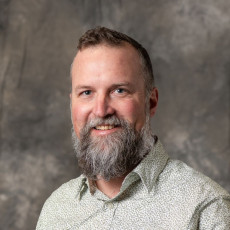Stefan Wild Named 2025 SIAM Fellow
March 27, 2025
Stefan Wild, Director of Berkeley Lab’s Applied Math and Computational Research Division, has been named a 2025 Society for Industrial and Applied Mathematics (SIAM) Fellow for his significant contributions to derivative-free optimization and its applications. Wild’s research impacts a variety of scientific and engineering fields, leveraging advanced computer simulations, intricate datasets, and physical experiments to tackle some of the most challenging problems in automated design and discovery.
SIAM is a professional society that focuses on the advancement and application of mathematics and computational science to solve real-world problems in engineering, industry, science, and society. This year, only 25 members were selected as SIAM Fellows, representing just 0.30% of the regular SIAM membership, highlighting the exceptional nature of their research and service. SIAM Fellows are instrumental in advancing the fields of applied mathematics, computational science, and data science. They will be honored during a special reception at the SIAM/CAIMS Annual Meetings in Montréal, Québec, Canada, in July 2025.
“I am deeply honored to be named a 2025 SIAM Fellow. This recognition is a testament to the collaborative efforts of my colleagues and the supportive environment at Berkeley Lab. I look forward to continuing our work to advance computational research and contribute to meaningful scientific discoveries,” said Wild.
About Berkeley Lab
Founded in 1931 on the belief that the biggest scientific challenges are best addressed by teams, Lawrence Berkeley National Laboratory and its scientists have been recognized with 16 Nobel Prizes. Today, Berkeley Lab researchers develop sustainable energy and environmental solutions, create useful new materials, advance the frontiers of computing, and probe the mysteries of life, matter, and the universe. Scientists from around the world rely on the Lab’s facilities for their own discovery science. Berkeley Lab is a multiprogram national laboratory, managed by the University of California for the U.S. Department of Energy’s Office of Science.
DOE’s Office of Science is the single largest supporter of basic research in the physical sciences in the United States, and is working to address some of the most pressing challenges of our time. For more information, please visit energy.gov/science.










